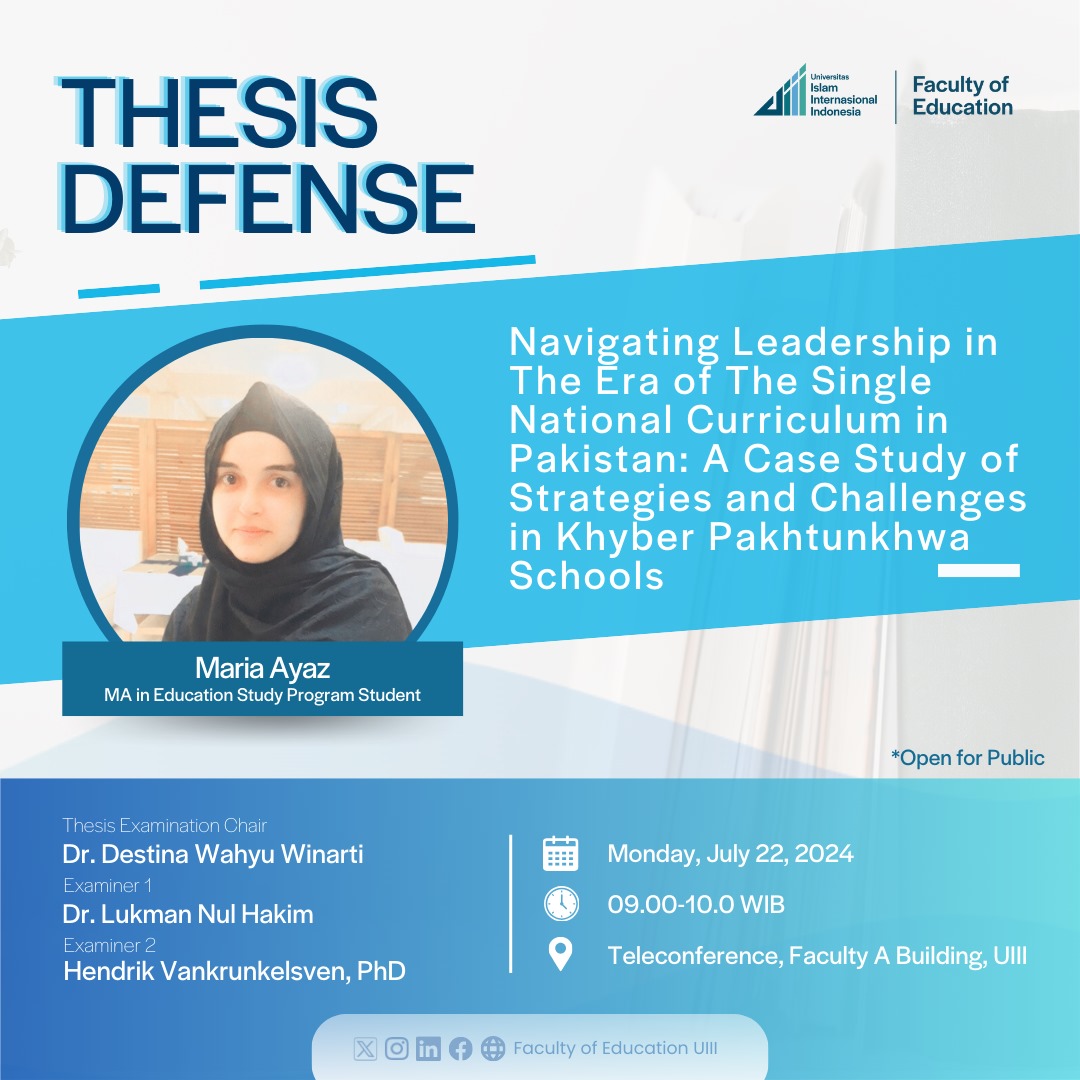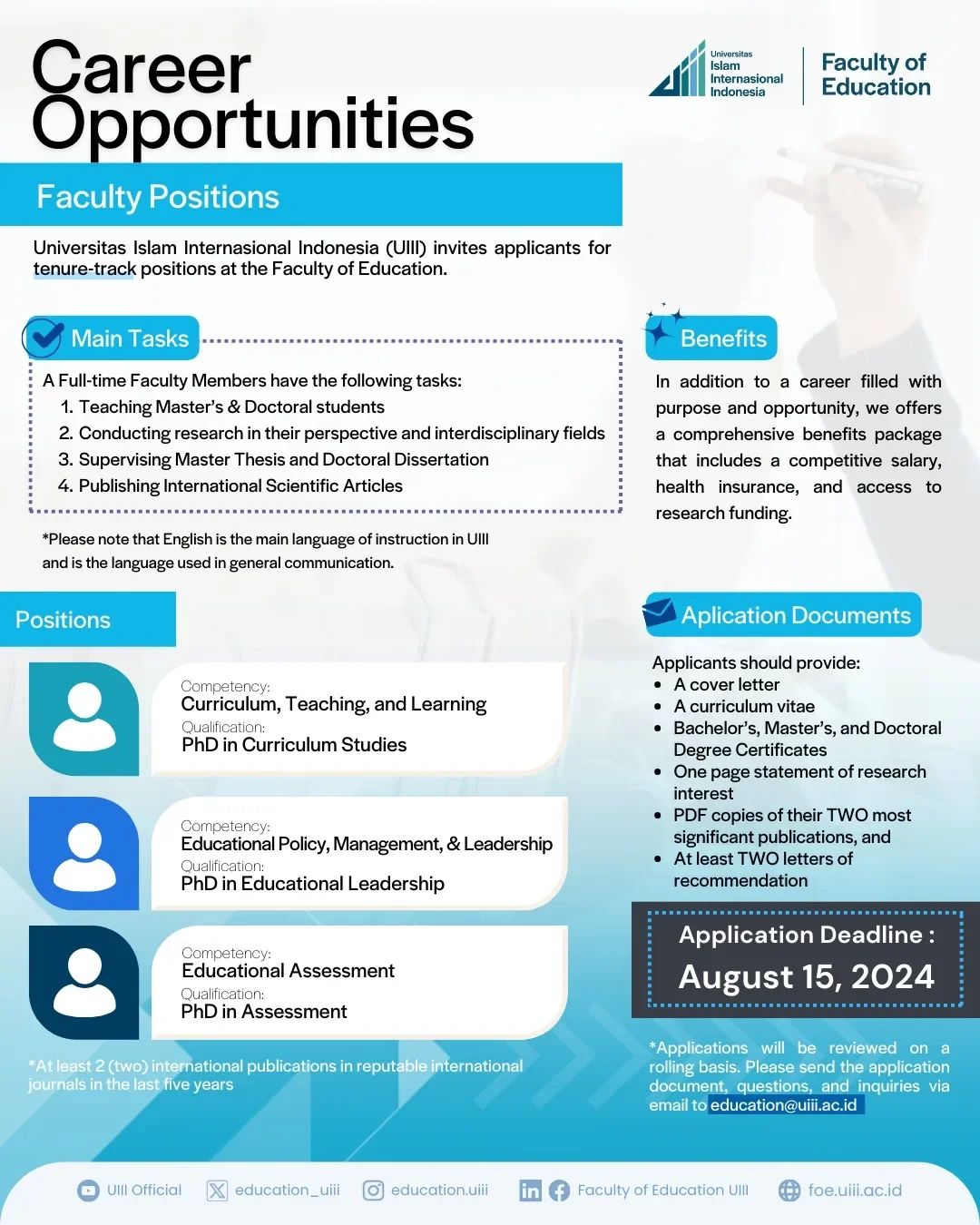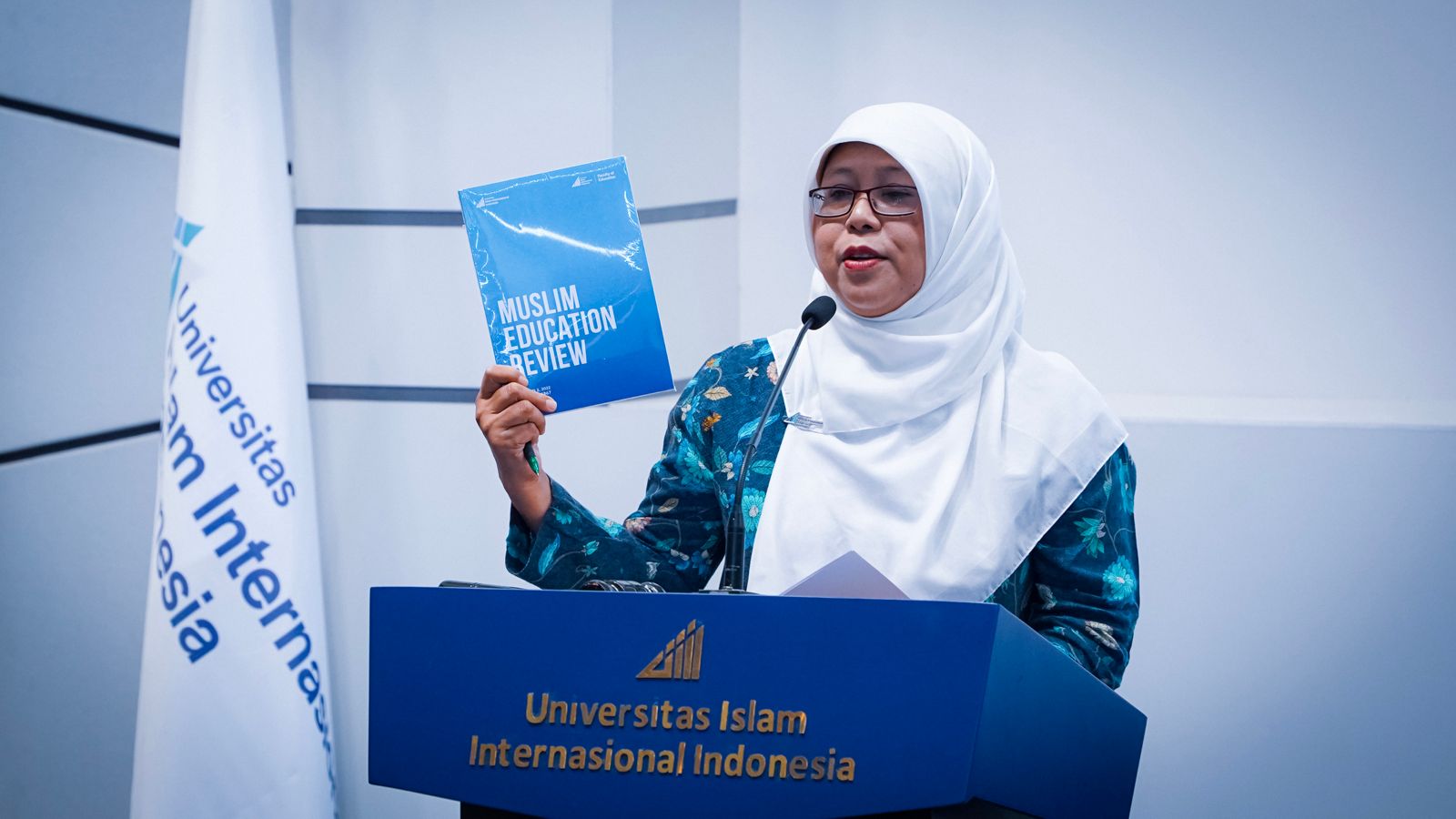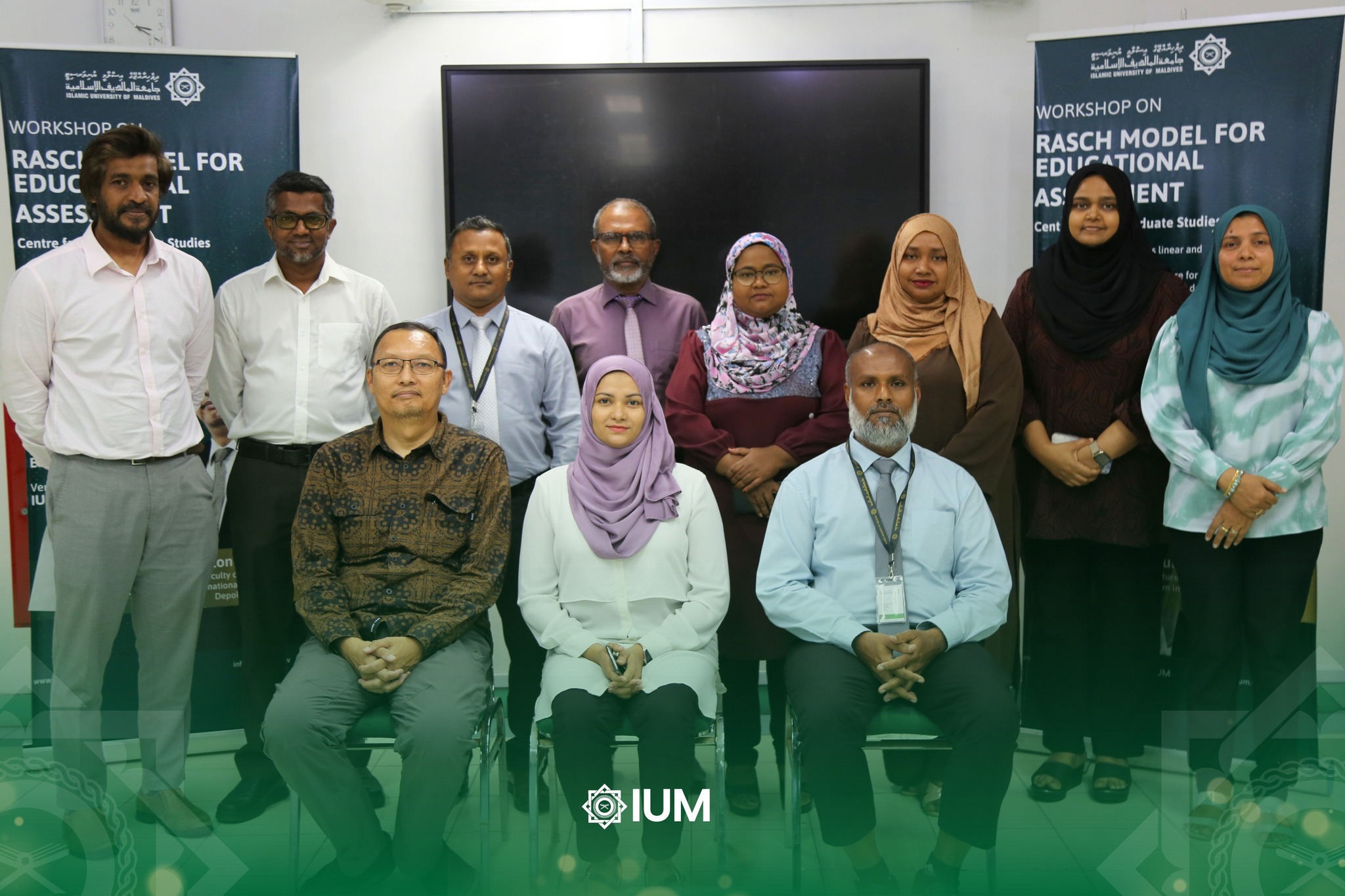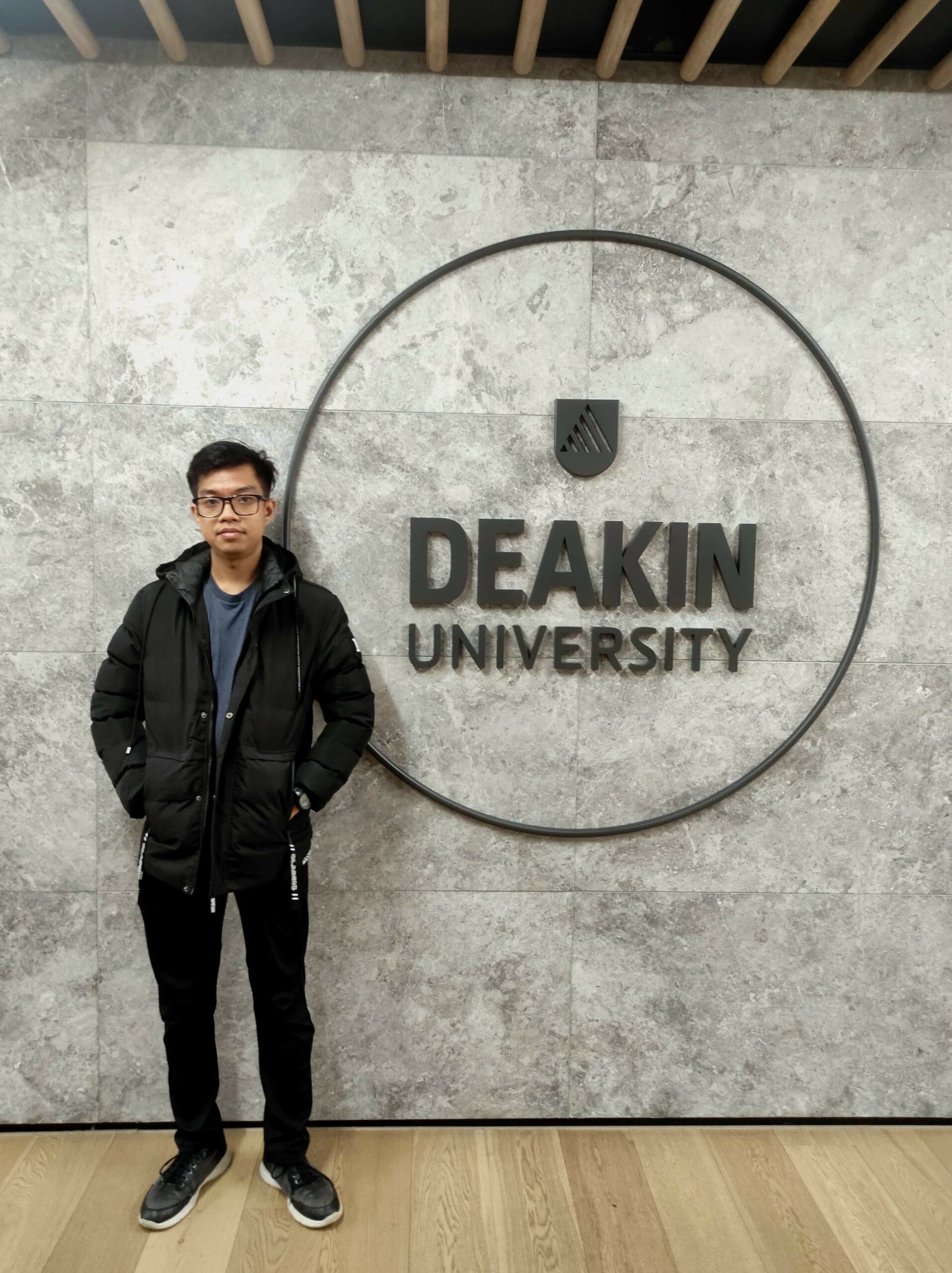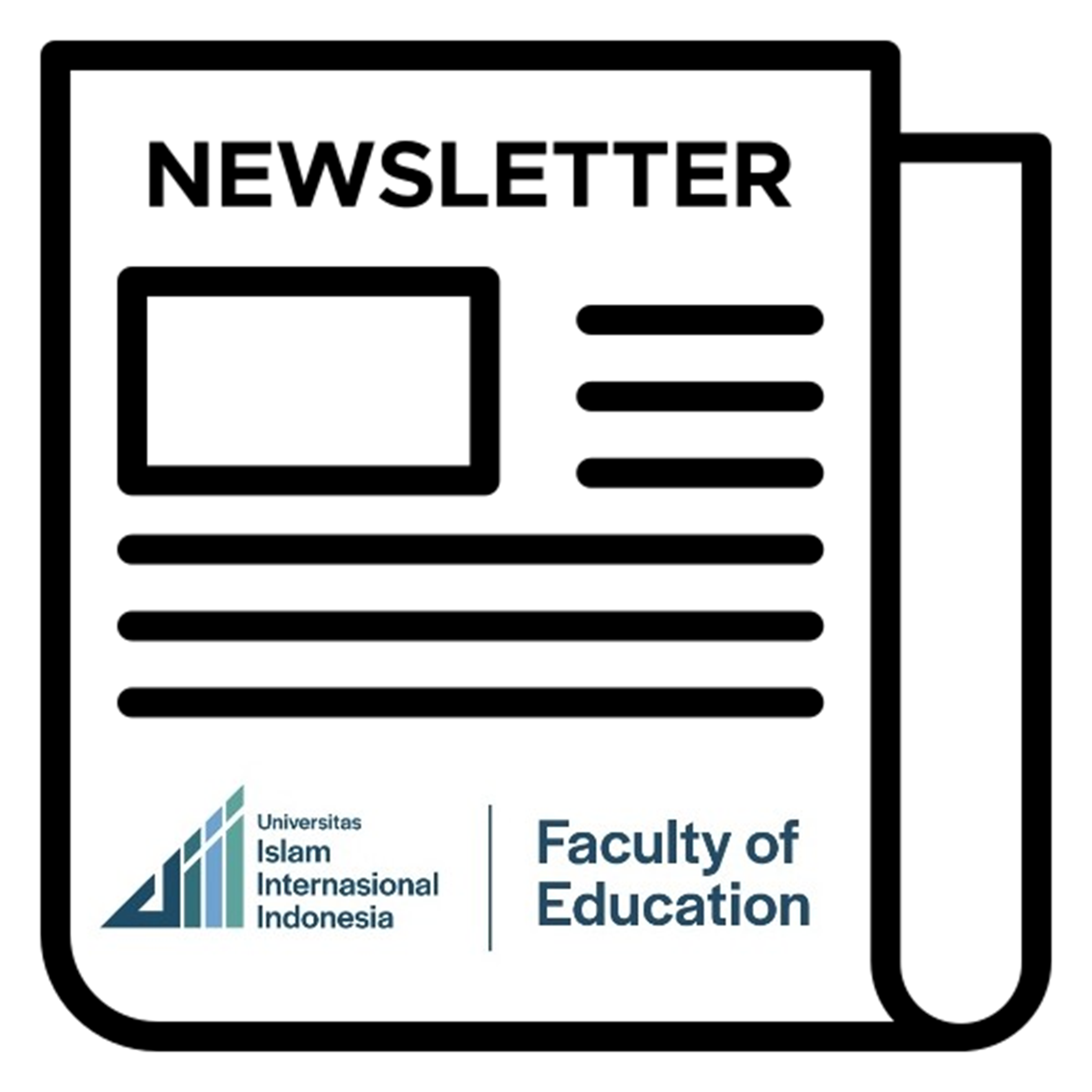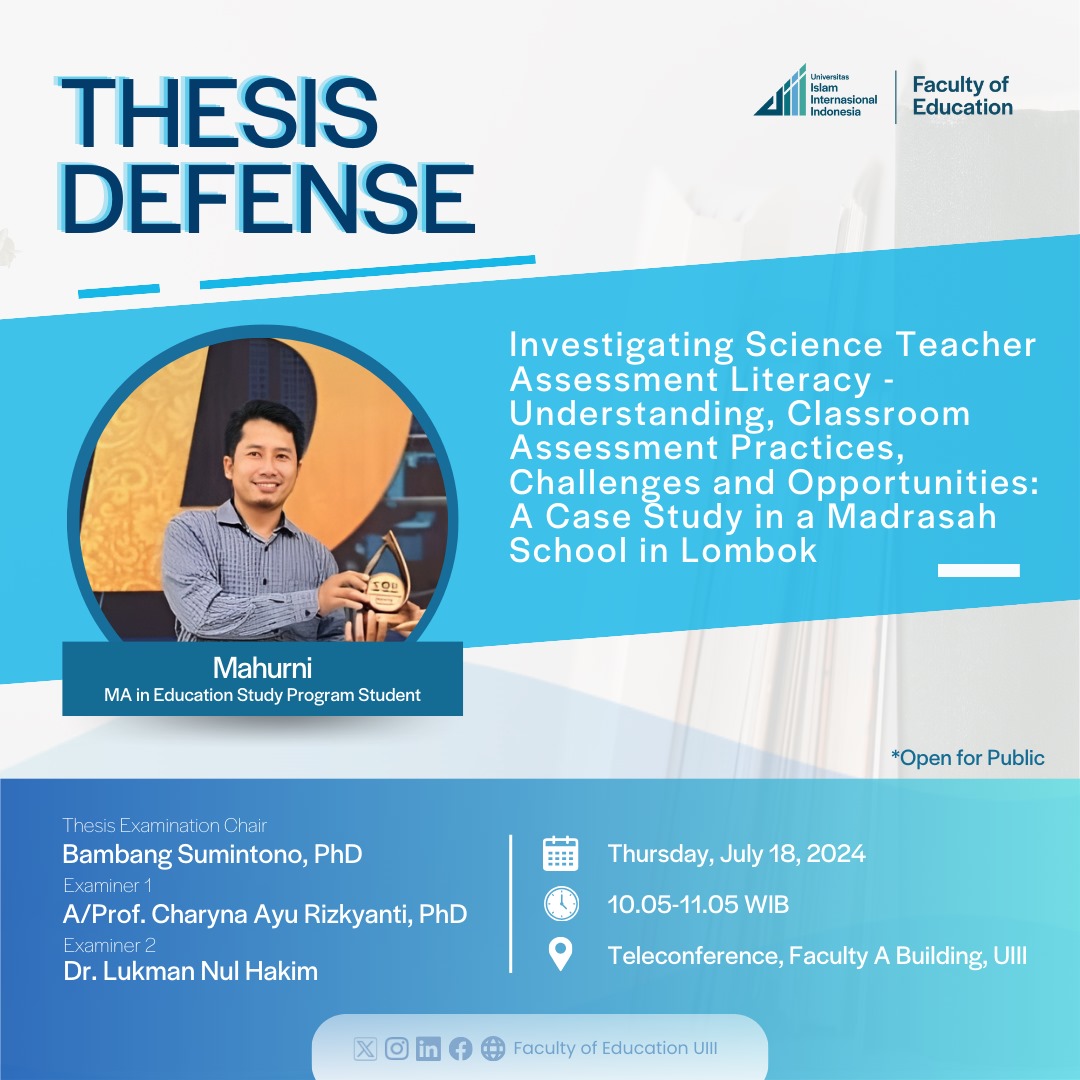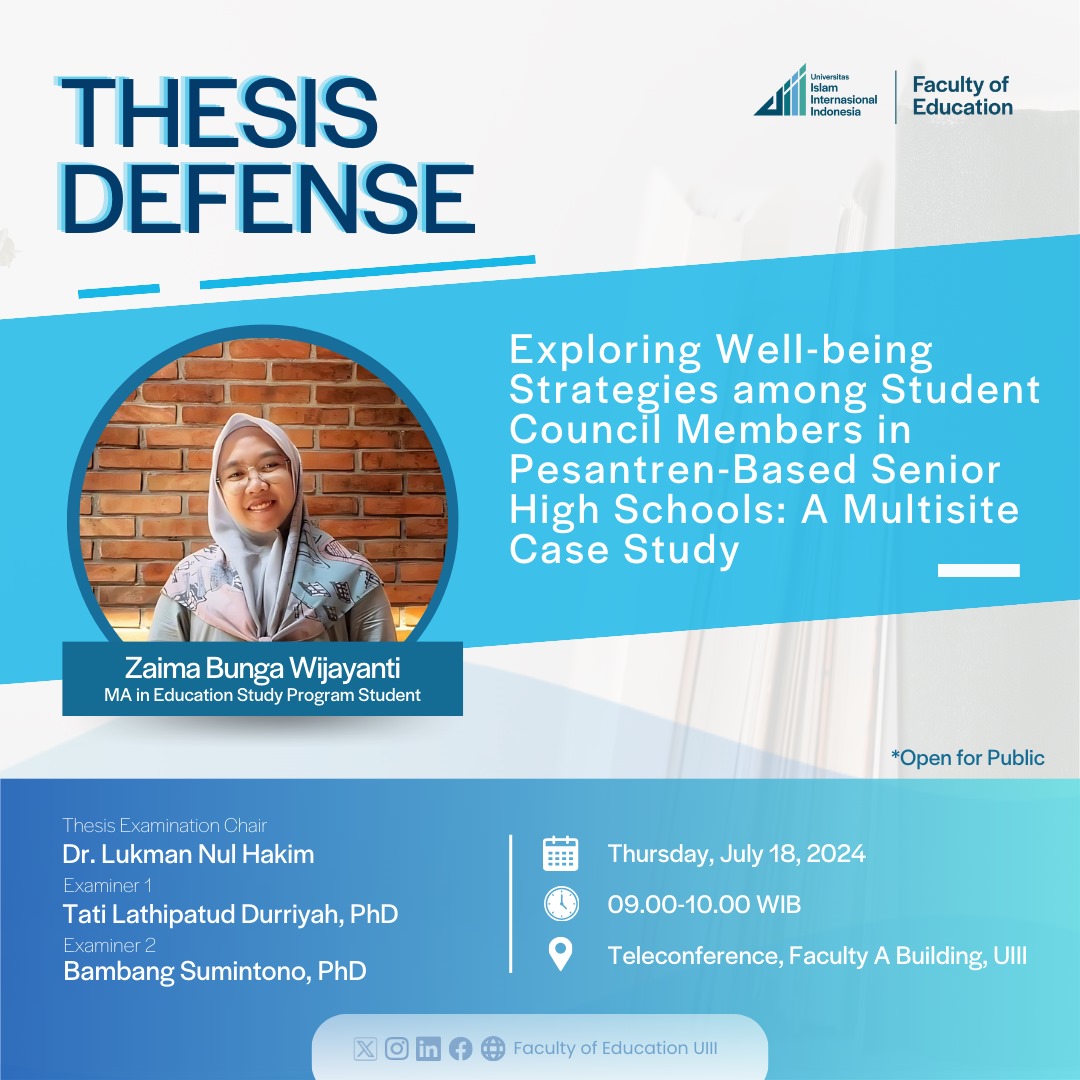Career Opportunities 2024: Faculty Positions


Dean of Faculty of Education Receives Grant for Women Scholars Empowerment in Global South
 Dean of Faculty of Education Receives Grant for Women Scholars Empowerment in Global South
Dean of Faculty of Education Receives Grant for Women Scholars Empowerment in Global South
July 18, 2024
Contributor: Achmad Jatnika | Editor: Supriyono
Professor Nina Nurmila, the Dean of the Faculty of Education at UIII, recently received a project grant of £25.4K from the British Academy (UK) to deliver training and mentorship to women scholars from the Global South, as part of an International Writing Workshops program.
The project, entitled “Decolonial Writing Workshops: Empowering Brazilian and Indonesian Women Scholars to Publish Global Academic Knowledge”, will be executed along with her colleagues, Dr. Leon Moosavi, Co-Director of the Liverpool Sociological Research Cluster, and Dr. Camila Prando from the University of Brasilia.
“Global North countries have always led the production of knowledge, thereby we follow their lead in this matter. Dr. Moosavi had an idea to break the barrier and decolonize the Global South's knowledge production. My attention is on gender, on women who still need much support in producing knowledge,” Professor Nurmila said.
Professor Nurmila elaborated that the project will target early-career women scholars in Indonesia and Brazil, aiming at honing their skills in producing research articles that can be published in well-reputed international journals. “We will provide what they need during the workshop, including day-care support for those with children,” she said.
The project will also facilitate South-South networking and collaboration between Brazilian and Indonesian scholars to produce new and valuable opportunities across the Global South.
UIII is always committed to promoting women’s participation and engagement in education by providing women-friendly facilities like daycare, and inclusive sports centers in the campus vicinity. We want women to feel safe on campus so that they can flourish during their learning journey.
Read more about the project here: Funding Success: £25.4k secured from the British Academy for decolonial writing workshops
Workshop on Rasch Model at Islamic University of Maldives 15-16 July 2024
 Workshop on Rasch Model at Islamic University of Maldives
Workshop on Rasch Model at Islamic University of Maldives
The Islamic University of Maldives (IUM) recently hosted an insightful workshop on the Rasch Model, a statistical technique widely used in educational assessment and psychometrics on 15-16 July 2024. The event attracted lecturers and researchers from Islamic University of Maldives, and officers from Ministry of Education of Maldives.
Dr. Bambang Sumintono, a lecturer from Faculty of Education, Universitas Islam Internasional Indonesia (UIII), who has expertise in educational measurement and Rasch model analysis, led the two days workshop. He introduced participants to the fundamentals of the Rasch Model, explaining its applications in analyzing test data and improving the validity and reliability of assessments using specific software, Ministep. The workshop featured interactive sessions, where attendees engaged in hands-on activities to better understand the construction and interpretation of Rasch models.
Previously, Dr Visal Moosa, deputy vice chancellor of research and innovation at Islamic University of Maldives, participated in Scholars in Residence program at Faculty of Education UIII, a kind of post-doctoral program. During his time in Universitas Islam Internasional Indonesia on September-November 2023, Dr Visal actively share his knowledge and expertise about systematic literature review, bibliometric analysis and educational management field. This time, a lecturer from UIII visited IUM in Male, Maldives, to share about Rasch model analysis.
Participants expressed enthusiasm for the practical knowledge gained, highlighting the Rasch model's potential to enhance the quality of educational assessments in the Maldives. The workshop is part of IUM's ongoing efforts to promote advanced research methodologies and support the professional development of lecturers and educators in the Maldives. Organizers hope to conduct more such events, fostering a community of practice around educational measurement and assessment in the region, and increase collaboration between two islamic universitis that come from Global South.


Reflection from visiting Deakin University, Australia
 Reflection from visiting Deakin University, Australia
Reflection from visiting Deakin University, Australia
By Eka Hermansyah
As John Dewey once described modern education, it must have an experiential foundation for students. This is precisely what I found during my visit to Deakin University from May 15 to 24, 2024. Education should facilitate student development rather than being a one-way process. I strive to deliver this reflection using my perspective as a student from Indonesia and to reflect on my experiences in both Australia and Indonesia, which of course, can be a matter of debate.
During my visit to Australia, I spent considerable time observing and consulting on research with experts at Deakin University. My observations covered the educational system, implementation of learning processes, staff-student interactions, and public facilities that support the educational system. I found that the system is not very different from Indonesia. However, when delved deeper at the management level, there are significant differences. One of them is the ethics of interacting with students, who are essentially children. The ease for students to approach the management for academic and well-being issues is a good example of how school management should be accessible and helpful to every component needing information related to education.
While in Victoria, we visited Deakin campuses in Burwood, Downtown, Waurn Ponds, and Geelong, as well as the State Library. Their facilities are notable in Indonesia, but in my humble opinion, Indonesia has issues with awareness and interest in using such facilities. Although it cannot be denied that in other parts of Indonesia, facilities are still lacking. Besides, on campus, we met with staff and lecturers and had the opportunity to discuss with international PhD students, including those from Indonesia. We discussed research, discipline focus in education, and opportunities for further studies in Australia. It is clear that postgraduate education abroad has different strategies and perspectives compared to education in Indonesia. Especially in terms of linearity, in Indonesia, linearity is often a requirement for having a career in the academic field, unlike in Australia (and perhaps in other global south countries), where multidisciplinarity is seen as a new opportunity because it opens more colorful discussions and provides new perspectives in academia.
We observed several classes at Deakin's Waurn Ponds campus, and what caught my attention the most was a class and discussion with Mr. Paul Garner. We attended the ECL210 class on literacy for primary teachers. The class was highly engaging and full of fruitful discussions. He successfully provided pre-service teachers with the experience of what it feels like to be primary school students, which is crucial for teachers to understand their role. His effort in teaching, even in the final week, demonstrated his passion for education. I was even more impressed when I learned that the challenges related to educational paperwork faced by teachers are similar to those in Indonesia. He was able to give his maximum effort despite having administrative tasks.
Furthermore, through discussions with lecturers, staff, and students, I found that the education systems in Indonesia and Australia are not vastly different. However, significant aspects that need improvement in Indonesia include collaboration between educators and academics. Additionally, pre-service teachers in Australia receive excellent facilities and support, resulting in high-quality outcomes. Not only do they see the essence of the educational world, but also the possibility of innovation and change in the educational world in the coming times is well considered. One example is the AR 360 room that can be used to create an artificial reality in the room so that students can learn using more real experiences. Continuing my PhD studies there would be very appealing given my experience at Deakin. It is important for me to consider Australia's culture and climate as an Indonesian before pursuing further education there, as undertaking a PhD is a commitment to becoming a full-time student and future academic.

